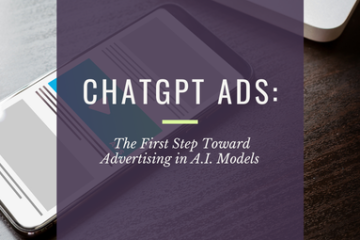
The Five Most Key Takeaways from This Blog
- This year, there were multiple notable uses of A.I. in the Olympics. Many news organizations and businesses are drawing attention to this. Heck, even the Olympics (i.e., the organization responsible for putting on the event, rather than the event itself) is drawing attention to it, using the nice designator “a game changer in sport” for A.I.
- The sports industry in general will be able to benefit from the A.I. that the Olympics is using in a high-profile manner.
- Data collection and analytics that A.I. can instantly perform will help athletes and coaches alike become more adept at their jobs.
- More convenient navigation of the physical space of the Olympics is one of the things that A.I. is helping with. This use case can easily extend to other sports venues.
- Another innovative use for A.I. in the sports industry is using A.I.-generated voices of broadcasters for recaps. Olympics viewers can see this in the case of an A.I.-generated Al Michaels voice that will recap certain events.
Sports Is Big Business
When we think of professional sports, our minds understandably go to the athletes and their performances, rather than the business side of things.
Of course, the necessity of the business side of things becomes clear once one considers the enormous amount of resources that goes into broadcasting sports.
And beyond broadcasting, consider other resource-consuming agenda items like setting up the physical events and ensuring that athletes have what they need to compete at a satisfiable level.
A.I. is a technology that is contributing a lot to the business side of things by making participation in and spectation of sports more high-tech.
Data Analysis to Optimize Performance
Is it safe to say that professional athletes are in general becoming better and better?
The writer of this blog believes the answer to be yes, indeed. But for what reason(s)?
Among the most significant factors supporting that bold claim is an increase in the sophistication of data analytics.
As NBC Bay Area reports, A.I.-powered data analytics are becoming a major component in sports. Even for events that will not be viewable via broadcast, A.I. can collect data about the event (e.g., a runner’s speed and time to finish) and make it available pretty much immediately.
Another interesting application here is how A.I. can instantly generate highlights from the events by promoting the data points that could be of the most interest. For instance, a record-breaking dash would be a highlight that A.I. could identify and immediately broadcast.
Navigating the Olympics, Literally, with A.I.
In a video by NBC News, the process of using A.I. to navigate the physical venue for the Olympics is demonstrated by the news piece’s reporter and an Intel employee.
This A.I. comes in the form of a phone application. In addition to the virtual map, delivery of audio instructions can come from a vaguely Siri-like (i.e., somewhat stilted and identifiably robotic, so that it does not seem as though the user is just on a phone call) that is something like the default voice goal for much voice-assistant A.I.
Using this software is much like having your hand held by a somewhat maternal digital assistant, so that you can sort of autopilot a bit while the A.I. handles figuring out how to get to where you want to go. This technology is especially useful for people with disabilities like visual impairments.
A.I. matters here because a venue can change in real-time, so the really sophisticated forms of these A.I. navigation implementations in venues will have sensors in place to update in real time any changes to the venue. Think of it as akin to how a GPS app can update with an alternative route whenever there is a traffic incident on a certain route.
This has applications far beyond the Olympics: See the exchange between an Intel employee and the NBC reporter in which the reporter, upon receiving an affirmative from the former to a question about whether the A.I. that is making the Olympics more navigable will be available in many other different venues, responds with “That’s…a gold medal, my friend!”
A.I. Broadcasters
In that same NBC video, we are told that an A.I.-generated voice of Al Michaels will be the “voice” of recaps for events. Yet another example of how A.I. is changing our relationship to sport.
Broadcasters’ voices in sports can become closely associated with the viewing experience itself, so an A.I. voice can create a positive viewing experience for many fans.
Michaels himself states a position that sums up how many people, business owners among them, have taken with respect to A.I.: “You can either resist it, or you can embrace it, and I’ve chosen the latter.”





